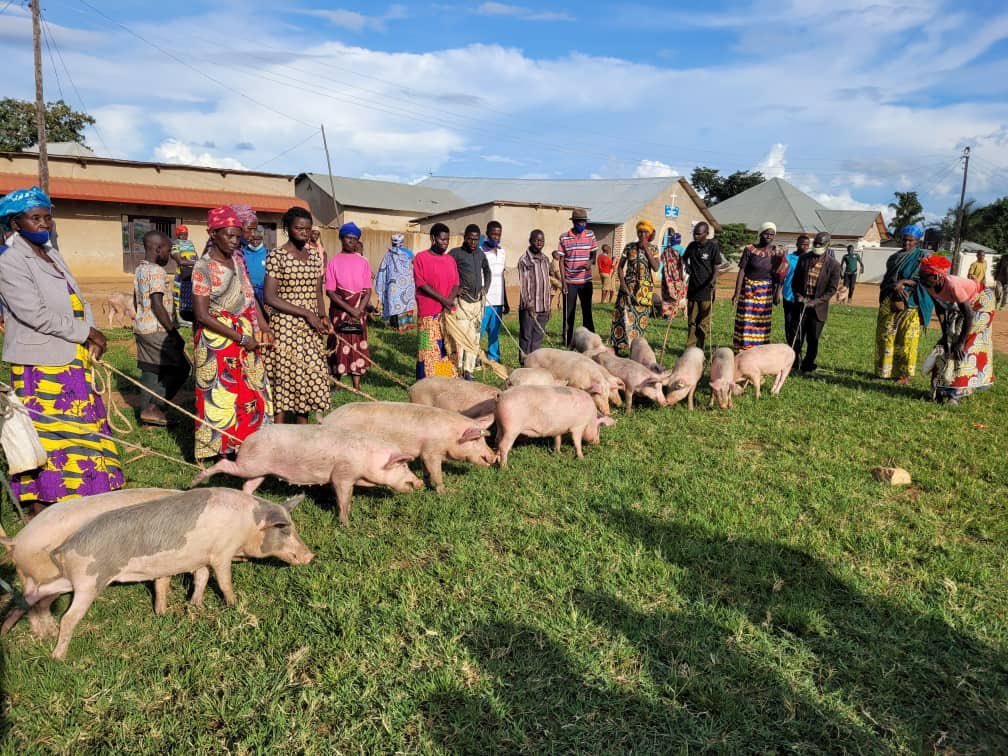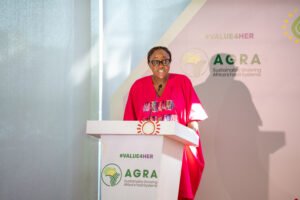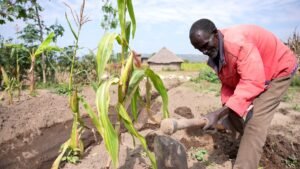By Zablon Oyugi, August 12, 2025, A livestock-sharing initiative in Rwanda is transforming thousands of rural lives by boosting incomes, improving nutrition, and strengthening community resilience.
Through the “Pass on the Gift” model—where farmers receive animals and later pass offspring to other households—the USD 45.6 million Partnership for Resilient and Inclusive Small Livestock Markets (PRISM) has turned livestock into a form of start-up capital for poor farmers.
According to the latest mid-term review by the International Fund for Agricultural Development (IFAD), PRISM—implemented between 2021 and 2026—has already reached 23,096 households in 15 districts, more than doubling its original early-stage target of 9,827 households.
Implemented in partnership with the Government of Rwanda and Heifer International, the project uses the “Pass on the Gift” (PoG) approach to spread benefits well beyond initial recipients.
Passing on the Gift in Action
Under the PoG model, each original farmer receives livestock—such as 10 chickens or a sow—alongside training and membership in a Self-Help Group (SHG). Once the animals produce offspring, the farmer passes on an agreed number (for example, 10 chicks or two piglets) to another household.
In some cases, original farmers also receive goats or sheep after completing the first pass-on. The process then repeats, creating a ripple effect across communities.
As of March 2025, PRISM farmers have distributed 63,098 chickens, 3,659 pigs, 10,617 goats, and 2,378 sheep. Alongside animal distribution, 1,164 SHGs have been formed, giving farmers access to technical training, financial literacy, and collective savings.
These groups have saved a total of USD 734,724—funds largely reinvested in purchasing more animals, paying for health insurance, buying land, or making household improvements.
Strengthening Value Chains and Market Access
To ensure livestock farming translates into sustainable income, PRISM has invested in value chain development. The project has built 10 small pig slaughterhouses, 15 livestock markets, and 15 proximity veterinary clinics. It has also enrolled 168,903 chickens and 4,021 pigs in Rwanda’s national agricultural insurance scheme.
These measures have opened markets for farmers’ products and safeguarded their livelihoods against disease outbreaks and other risks, while also promoting local enterprises in animal feed production, chicken brooding, pig fattening, and egg sales.
Impact on Incomes, Nutrition, and Community Growth
The mid-term review found that PRISM beneficiaries’ incomes had risen by 19.5% compared to the baseline year 2021—outpacing the 11.8% growth in the control group.
This gain was largely driven by a doubling of animal sales and a 66% rise in manure sales. The welfare index of participating households increased by 7.7 percentage points, compared to 3.4 points in the control group.
Nutrition indicators also improved markedly: the share of households eating at least two meals per day jumped from 44% at baseline to 65% at mid-term (versus 51% in the control group). Nearly all beneficiary households (96%) reported improved eating habits, compared to just over half (51%) of non-participants.
The project’s impact has extended beyond direct beneficiaries. Inspired by PRISM’s success, 1,178 non-participating households have invested in livestock, often choosing hardy Sasso chicken breeds.
A Sustainable Path Out of Poverty
By combining livestock asset transfers with training, savings groups, and market infrastructure, PRISM has created a self-sustaining cycle of productivity and empowerment. As Claudine, a farmer in Rutsiro District who grew her flock from 10 to over 150 chickens, put it: “You don’t only milk cows—you can milk chicken!”
With more than a year left until completion, PRISM’s inclusive, community-driven approach is poised to continue lifting families out of poverty while strengthening Rwanda’s small livestock sector for the long term.







